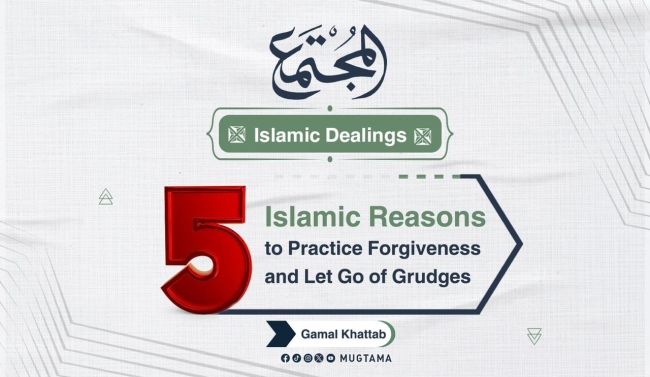5 Islamic Reasons to Practice Forgiveness and Let Go of Grudges Featured
The human experience is woven with threads of joy and sorrow, love, and betrayal. When wronged, a natural response might be to harbor resentment and cling to grudges. However, Islam emphasizes the importance of forgiveness and letting go of these negative emotions. This essay explores five key reasons why practicing forgiveness aligns with Islamic principles and ultimately benefits the believer.
- Forgiveness Reflects the Divine Attributes of Allah
Allah (SWT) is described in the Quran as the Most Forgiving, the Most Merciful (Ar-Rahman, Ar-Rahim). He forgives our transgressions, both big and small, if we seek His pardon with sincere repentance (Nasuh Tawbah).
- The Quran beautifully portrays Allah's all-encompassing forgiveness: "Say, ‘O My servants who have transgressed against themselves [by sinning], do not despair of the mercy of Allah. Indeed, Allah forgives all sins. Indeed, it is He who is the Forgiving, the Most Merciful.'" (Quran 39:53)
This verse reminds us that Allah's forgiveness is vast and all-encompassing. By striving to forgive others, we emulate these divine attributes and embody the spirit of Islam.
- Forgiveness Promotes Peace and Harmony in Relationships
Holding onto grudges can poison relationships, breeding resentment and hindering communication. Forgiveness, on the other hand, paves the way for reconciliation and a fresh start.
- The Prophet Muhammad (PBUH) emphasized the importance of restoring broken relationships through forgiveness: "It is not permissible for a Muslim to abandon (stop talking to) his brother (or sister) for more than three days, except for two men who meet and turn away from each other (with anger)..." (Sahih al-Bukhari)
This Hadith highlights the importance of actively seeking reconciliation and letting go of anger. Forgiveness allows bridges to be rebuilt, fostering stronger and more positive relationships within the Muslim community (Ummah).
- Forgiveness Lightens the Burden on the Heart
Carrying the weight of resentment can be emotionally and spiritually draining. Forgiveness, however, acts as a release valve, allowing us to let go of negativity and find peace.
- The Quran emphasizes the psychological benefits of forgiveness: "...And whoever forgives and rectifies – then his reward is from Allah." (Quran 42:40)
This verse suggests that forgiveness brings not only divine reward but also inner peace and relief. By letting go, we free ourselves from the emotional turmoil caused by grudges.
- Forgiveness Encourages Self-Improvement
The act of forgiving can be a catalyst for self-reflection. By understanding the situation and the motivations behind the offense, we can identify areas for personal growth and avoid similar situations in the future.
- The Prophet Muhammad (PBUH) encouraged believers to learn from negative experiences and practice self-improvement: "The strong believer is better and more beloved to Allah than the weak believer, although there is good in both of them. Strive for what benefits you, seek help from Allah, and do not weaken." (Sahih Muslim)
This Hadith reminds us to find the positive in every situation, even those involving conflict. By forgiving and learning from the experience, we can become stronger and more resilient individuals.
- Forgiveness Opens Doors to Divine Mercy
True forgiveness is not simply suppressing negative emotions but releasing them with the intention of not harboring resentment. This act of selflessness opens doors to Allah's mercy and blessings.
- The Prophet Muhammad (PBUH) said: "Whoever removes a worldly grief from a believer, Allah will remove from him a grief of the Hereafter. Whoever eases hardship for a struggling person, Allah will ease hardship for him in this life and the Hereafter. Whoever conceals (the fault of) a Muslim, Allah will conceal (his faults) in this life and the Hereafter. Allah is ever in pursuit of the good deed (of His servants) until He does it." (Sahih Muslim)
This Hadith highlights the interconnectedness of good deeds. By forgiving others, we not only benefit ourselves but also pave the way for Allah's mercy in this life and the hereafter.
Forgiveness is not a condoning of wrongdoing but a conscious decision to release negativity and seek a higher ground. By following the teachings of Islam and emulating the divine attributes of Allah, we can cultivate a spirit of forgiveness, fostering peace within ourselves and our relationships. Remember, forgiveness is a journey, not a destination. It takes time and effort, but the rewards – both spiritual and worldly – are immense.
-----------
Source: https://crcc.usc.edu/report/healing-heartwork-toolkit-vol2/part-three-safety/
-----------


